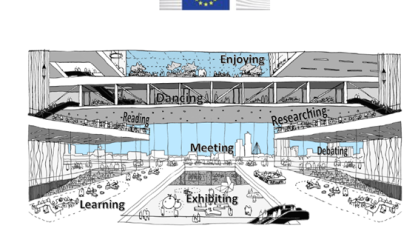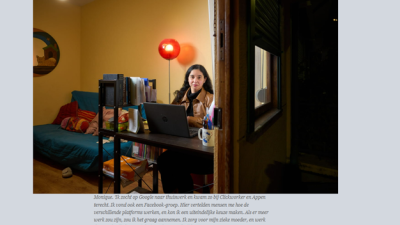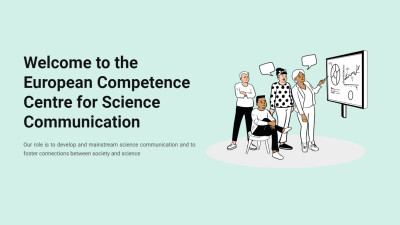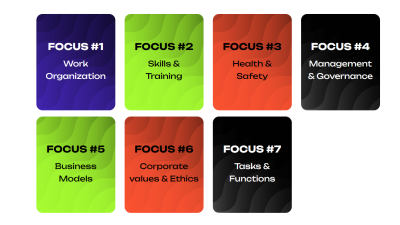CultuurCampus: A sustainable hub of arts, research, learning and community as the catalyst of territorial transformation

Located in the most disadvantaged neighbourhood of Rotterdam, the second largest city and municipality in the Netherlands, the CultuurCampus showcases complex societal challenges affecting Europe’s most disadvantaged neighbourhoods. It is the foundation of a very large collaboration amongst Rotterdam’s arts and science education institutions, the city- and the municipality of Rotterdam, civic society associations, social enterprise and a business accelerator, with the goal of creating a unique Culture Campus by 2030.
CultuurCampus is a unique partnership that brings together creativity, science, education, and culture, in a transdisciplinary and multi-level partnership. It establishes educational, research and cultural infrastructure that the area currently lacks and tailors it to its needs and opportunities. Together with its partners and the whole local community the aim is to develop ground-breaking solutions for challenges that are relevant to cities all over the world, and to educate a new generation of city-makers.
Said Kasmi, Alderman for Education (Culture and Tourism for the City of Rotterdam): "In the future, Rotterdam will be able to distinguish itself as a leader in the field of art education...This is also good for Rotterdam-South: it inspires children and young people from the area, provides employment and connection in neighbourhoods and attracts tourists. We are proud that we are going to work on this together with these educational institutions."
Impact
The vision for CultuurCampus can be summarised through the following points:
- Education and research institutions can maximise their societal impact by adopting an inclusive and co-creative approach. The project will pilot a new type of education, research, and cultural space, centred on sustainability and inclusive principles, where students, teachers, citizens and practitioners come into contact with residents and businesses for the co-design and implementation of tailored activities. The project envisages a new way of doing transdisciplinary education and research that is embedded in and responsive to local needs. Residents and stakeholders are not the object of study or target of teaching but are actively engaged in co-creation of educational formats and studies oriented towards positive societal impact.
- A place-based urban renewal agenda that combines long-term goals with social innovations, co-design and participatory approaches. The approach fits within an urban policy agenda that calls for ‘place-sensitive territorial development’ that combines theory and practice-based insights, and is attentive to the needs of local inhabitants. Since 2011, the National Programme Rotterdam South (NPRZ) has offered a framework for the delivery of projects and initiatives in the area. Its goal is to improve Rotterdam South’s performance on indicators of quality of life, work and education, bringing it on par with the rest of the city and the four largest cities in the country, by 2030.
- The arts, crafts and cultural practices can be at the heart of creative placemaking without producing processes of gentrification. Previous studies have shown the inherent paradox of arts and culture centred processes of neighbourhood renewal. Although these practices are recognized for catalysing positive change, they often come with a looming threat of gentrification and displacement. CultuurCampus is mindful of these concerns, and pilots a form of creative placemaking that is community-driven, where culture is not instrumentalized for development purposes. The effectiveness and impact on communities and the built environment of the various activities will be carefully monitored and an open dialogue will inform the municipality’s and key stakeholders’ decision-making.
Dr. Femke Vandenberg (Erasmus University Rotterdam): "We want to develop new forms of education based on equality between local residents and institutions. We need to find other ways of doing research and make sure residents have more influence. This could take the form of participatory research, and a better rewards system, such as financial compensation or co-ownership of the research."
Horizon Europe - Global Challenges: Climate, Energy and Mobility
Meer verhalen van Erasmus Universiteit Rotterdam
-

-
COALESCE: Coordinated Opportunities for Advanced Leadership and Engagement in Science Communication in Europe
Erasmus Universiteit Rotterdam

-
SEISMEC: Supporting European Industry Success Maximization through Empowerment Centred development
Erasmus Universiteit Rotterdam
